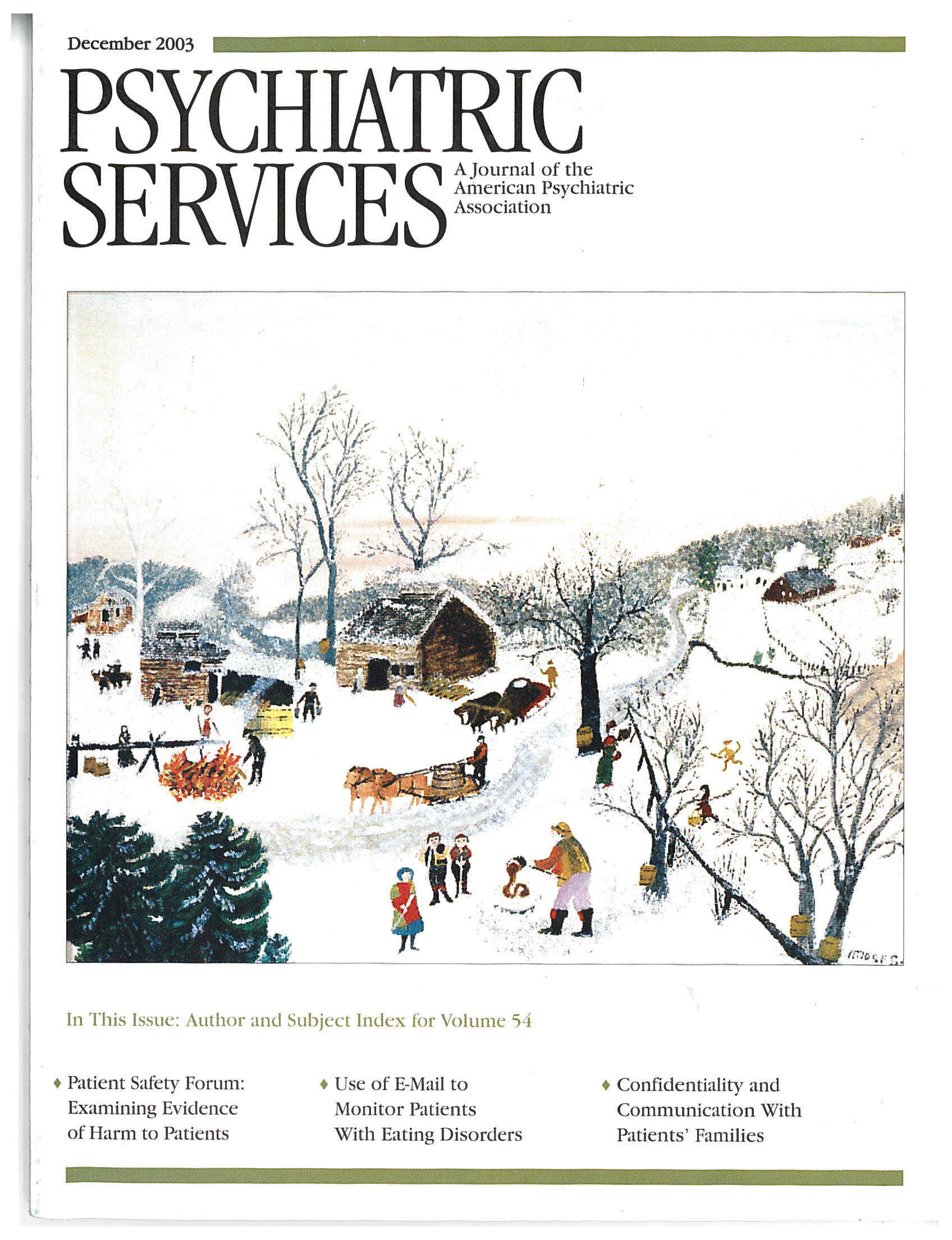A Mouthful of Air
How can a book—a first novel—that describes depression offer something of value to mental health care providers? Would a professional choose to read a novel about a depressed young woman, written by a nonprofessional, instead of going directly to clinical literature? A Mouthful of Air, by Amy Koppelman, answers these questions in a quiet and haunting way, exploring the day-to-day experience of Julie Davis, the book's main character. Koppelman is a recent graduate of Columbia's Master of Fine Arts program. She has written prose for magazines and journals. Married and the mother of two small children, in A Mouthful of Air she writes about a young married mother.
Julie Davis is a young adult whose life is unfolding. We might view Julie as privileged and exceptionally lucky. She has a kind, good, and successful husband who loves her. Her parents are both living, although divorced. She has one sibling, a brother. She has recently had a first child, a son who is almost one year old. She has financial security and friends. Conversely, she has had major depression, exacerbated by the birth of her son. She is receiving treatment from a psychiatrist and is taking medication. There are hints of sexual inappropriateness in her history—for example, possible abuse by her father. Julie struggles mightily just to stay alive, to feel that she is living. The author describes this state of depression with a consistency that permeates the emotional core of this novel. For Julie, self-hating thoughts emerge out of the smallest challenge; she has irrational fears as well as obsessive and negative thoughts that border on command hallucinations. We sense a desperate struggle to keep her life going after a serious suicide attempt.
The novel invites the reader to inhabit Julie's mind, to experience her thoughts, feelings, and intentions as they arise. Koppelman writes with lightness, cultivating the desire to know her character. Julie's mind states are painful, but the reader is not averse to knowing her condition. There is considerable tension between the character the reader comes to care about and the illness that character struggles with. Events in Julie's life lead in a direction that allows the illness to gain force and power. We feel for Julie as she struggles to understand her illness. She attempts to control and overcome certain situations, while simultaneously the depression gains momentum and eventually engulfs her.
Therapy and treatment are very much in the background in this novel. Treatment is presented in a neutral manner. Still, the mental health care professional will find what is said about treatment and what is not said very interesting. Julie's depression and the form of care she receives leave much to think about. She never seems to be engaged in her own treatment. This disengagement is a pervasive quality that affects all her relationships. Her affective relationships appear disconnected and dissociated; it is unclear whether this is due to her depression or to her past traumatic relationships. We wonder what might have happened to Julie had her psychotherapist been more active in engaging her directly in solving her problems.
Julie drifts further and further away as her therapist, her husband, and her family take more and more responsibility away from her. This is the paradox and challenge when treating a seriously at-risk patient. Julie encounters a treater who appears to know what is best for her. The psychiatrist does not struggle directly with Julie to keep her in charge of her own treatment. Is it essential to step in and manage an at-risk patient or, better, to attempt to fully engage the patient in the discovery of his or her own healing?
This short novel illuminates the psychic pain of a major depression. We are reminded that patients come to treatment in the hope of receiving relief. A Mouthful of Air describes this suffering and the consequences that treatment can have when the bond between the therapist and the client are not fully developed. The role played by parental narcissism and sexual abuse in the establishment of chronic destructive patterns is subtly illustrated.
This is a novel to share with a colleague. It can be used in clinical discussions of depression, sexual abuse, sexual inappropriateness, and work with disengaged patients. It is a story that reminds us to care deeply about our patients. We really do not know how they feel. A Mouthful of Air is a cautionary tale, a wake-up call about the ever-important task of relationship building between therapist and patient. The patient is always the expert on his or her illness. We as providers are there to bear witness, to assist in the discovery of what is important and enduring in the patient's healing.
Ms. Glimm is with the child and family team at the Bronx HIP Mental Health Center in New York.



